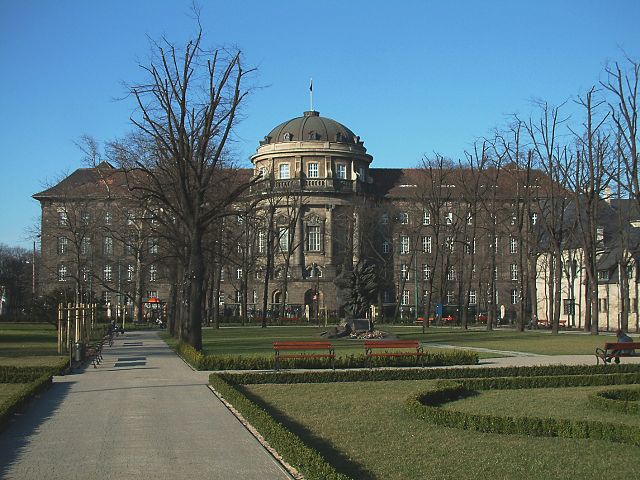Prussian Settlement Commission
The Prussian Settlement Commission, officially known as the Royal Prussian Settlement Commission in the Provinces West Prussia and Posen was a Prussian government commission that operated between 1886 and 1924, but actively only until 1918. It was set up by Otto von Bismarck to increase land ownership by ethnically German Germans at the expense of ethnically Polish Germans, by economic and political means, in Prussia's eastern provinces of West Prussia and the Posen as part of his larger efforts aiming at the eradication of the Polish nation. The commission was motivated by German racism.
Former seat of the Prussian Settlement Commission, now Poznań University's Collegium Maius
Acquisitions of the Prussian Settlement Commission
The Province of West Prussia was a province of Prussia from 1773 to 1829 and 1878 to 1920. West Prussia was established as a province of the Kingdom of Prussia in 1773, formed from Royal Prussia of the Polish–Lithuanian Commonwealth annexed in the First Partition of Poland. West Prussia was dissolved in 1829 and merged with East Prussia to form the Province of Prussia, but was re-established in 1878 when the merger was reversed and became part of the German Empire. From 1918, West Prussia was a province of the Free State of Prussia within Weimar Germany, losing most of its territory to the Second Polish Republic and the Free City of Danzig in the Treaty of Versailles. West Prussia was dissolved in 1920, and its remaining western territory was merged with Posen to form Posen-West Prussia, and its eastern territory merged with East Prussia as the Region of West Prussia district.

The fortress Ordensburg Marienburg in Malbork, Poland. Founded in 1274 by the Teutonic Order on the river Nogat, it is the world’s largest brick castle. After 1466 it served as one of several royal residences of the Polish kings, fulfilling this function until 1772.



